Climate change
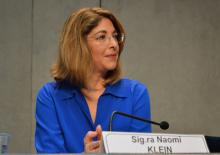
Anti-capitalism activist Naomi Klein on July 1 praised Pope Francis for standing up to Republicans who are warring against environmentalists, as the Vatican continues its battle against climate change with a high-level conference at the Holy See.
“I do believe that given the attacks that are coming from the Republican Party and fossil fuel interests in the U.S. it was a particularly courageous decision to invite me here,” Klein, who lives in Canada, told journalists at the Vatican.
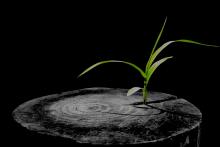
“The task of cleaning up our environment calls for a total mobilization by all of us. It involves governments at every level; it requires the help of every citizen.”
Sounds like a liberal Democrat, right? Someone who has been using Pope Francis’s recent climate encyclical Laudato Si’ (“Blessed Be”) as a political bludgeon, wielded against “climate change deniers?” Nancy Pelosi, perhaps? Not quite.
With these words, President Richard Nixon concluded his plea to congress in 1970 to take action on behalf of the environment, stressing that this was “an urgent common goal of all Americans.” Nixon then gathered bipartisan support as he spearheaded the creation of the Environmental Protection Agency, and inked 14 laws related to environmental protection.
To be sure, Nixon didn’t know what to make of environmentalists, once complaining that they wanted everyone to live like “a bunch of damned animals.” Still, when a 2012 poll asked 12 leading environmental groups to rank the three most environmentally-friendly presidents, Nixon came in second — behind Teddy Roosevelt, a fellow Republican.

The interfaith element of the pope’s environmental message was reflected in the diverse range of religious leaders present.The interfaith element of the pope’s environmental message was reflected in the diverse range of religious leaders present.Religious leaders from across the globe led a “Many Faiths – One Planet” march to the Vatican on June 28, to show their support of Pope Francis’ groundbreaking environmental encyclical.
Organizers estimated a crowd of 5,000 people reached St. Peter’s Square to celebrate the pontiff’s tough stance on climate change, after parading through Rome under a canopy of painted banners.

The past 12 months of violence against unarmed black bodies continues to draw national attention to the ongoing challenge of police brutality in the United States. Under the collective action call of #blacklivesmatter, activists and concerned citizens across the country challenge the ideology of white supremacy undergirding our criminal justice system and demand an end to state violence against black bodies. Yet the #blacklivesmatter movement is about more than an end to police brutality; it is call for the health, wholeness, and vitality of all black communities and a world in which black lives are no longer systemically and intentional targeted for demise. This includes an account of the physical environment in which black communities reside.

Pope Francis writes, “All of us can cooperate as instruments of God for the care of creation, each according to his or her own culture, experience, involvements, and talents.” And it is the combination of our talents that can alter the path of destruction we have traveled down for far too long.
Pope Francis paints the picture of this path all too well.
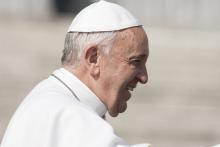
By choosing to focus on the plight of the poor and the groaning of the earth itself, Francis is tapping into something much deeper than denominational squabbles and political maneuvering. He is seeking to make an end-run around the tedious shouting matches of privileged contenders in pitched ideological battles. This is a pope, not of the pundits but of the people – and of the planet.
We’re all connected. Just as the body of Christ is one – despite all of our institutional and ideological boundaries – all of humanity, all life is one. We’re rooted together in the soil that feeds us, in the natural ecosystems that sustain our very existence.

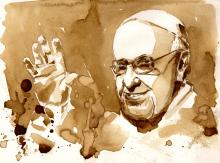
Next week, Pope Francis is scheduled to release “Laudato Sii” (“Praised be You”), his eagerly anticipated encyclical (authoritative teaching document) on the environment.
I have never seen such excitement – and controversy – surrounding an encyclical. It speaks to the extraordinary global presence Francis has achieved in a relatively short period of time. This feels to me like one of those rare moments when the Message and the Messenger can combine to change the world in a very significant way.
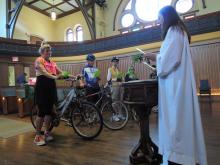
It was the sixth annual Blessing of the Bikes at the downtown church — a type of local event that has become more common as a growing number of churches consider the idea that protecting the environment is not just a scientific or political debate, but a spiritual one.
The movement has grown in the past decade and crosses denominations. An “Evangelical Climate Initiative” issued in 2006 has been signed by hundreds of religious leaders, and the Vatican held a one-day summit in late April to “elevate the debate on the moral dimensions of protecting the environment.” Pope Francis is preparing this summer to issue an encyclical — one of the most authoritative church documents — framing climate change action as a moral and religious imperative.
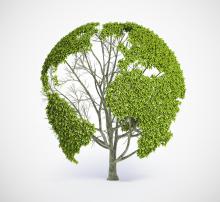
Why does caring about Jesus mean we should care for the earth? There are plenty of Old Testament passages about the lordship of God over all creation, but let’s limit ourselves, for the sake of evangelical argument, to Jesus. He cares about ecology because of his incarnation into creation, his miracles restoring creation, and his lordship over creation.
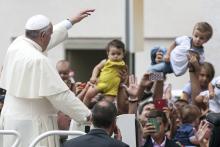
More than 300 rabbis — inspired by the climate crisis, the Torah’s call for a Sabbatical Year of releasing the Earth from overwork, and the impending Papal Encyclical on the climate crisis — have joined their voices in the Rabbinic Letter on the Climate Crisis: a call to action to prevent further climate-fuelled disasters and work toward eco-social justice.
Rabbis from across the denominational spectrum, at this writing 333 in all, signed in support of the call in less than two weeks, and their signatures continue to grow.
1. I Went to Church with Bruce Jenner, and Here’s What Caitlyn Taught Me About Jesus
“Caitlyn knows who Jesus is, and Jesus knows her by name. Whether that sits comfortably on a timeline or blog comment, I know firsthand that Caitlyn has heard the good news. And, Caitlyn has taught me more about Jesus.”
2. And the Award for Trailblazing Feminist Icon Goes to — Miss Piggy
The Sackler Center for Feminist Art awarded the Muppet with its First Award, which recognizes women for being first in their fields and has included the likes of Sandra Day O’Connor, because the character has “qualities that … women need to have to face the world as it is, and she gives us a good smile on top of it all.”
3. In Baltimore Schools, Free Meals for All
"Given the socio-economic status of the city, it's a no-brainer," [parent David T.] Clements said of the program. "Parents can now take that money and apply it to their futures."
4. Study Finds Global Warming Hasn’t Slowed
The latest study, published in Science, reverses previously held thought that global warming was on hiatus. Not so, according to the numbers, which were based on what the scientists say is more accurate land and sea temperature measurements.

LAST SPRING, Archbishop Desmond Tutu, an architect of the South African freedom movement, called for “an apartheid-style boycott to save the planet.” Tutu—along with millions of people of faith and conscience—understands not only that it is morally right to address climate change, but that money talks. “People of conscience need to break their ties with corporations financing the injustice of climate change,” said Tutu.
The fossil-fuel divestment movement has its roots in grassroots mobilizing, churches, local governments, and student campaigns. The movement has grown exponentially in the U.S. since Maine’s Unity College became the first campus to divest (in 2012) and the United Church of Christ became the first denomination to formally divest (in 2013). Today, divestment from fossil fuels is gaining momentum, with increasing numbers of asset owners committing to moving their money.
In fact, this campaign has grown faster than any other previous divestment movements, including those against apartheid in South Africa and tobacco. A number of factors indicate that we are at a tipping point. Here are four: 1) last year was the hottest year on record, 2) expenses related to climate change are skyrocketing, 3) significant financial risks are now associated with fossil-fuel investments and the divestment movement is growing, 4) and the economics of renewable energy products is improving, so investments in these products is growing.

In a world of highly charged political rhetoric, the essay provides language and a framework for a community discussion on environmental ethics that takes a step back from immediate policy debate. This work doesn’t diminish the importance of these other discussions; rather it provides a context in which that work might be more readily possible.
Our ability to make meaningful collective moral decision requires us to be able to first have enough common moral language to have a conversation. This might be a good place to start.
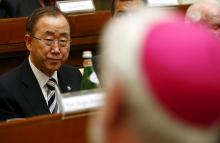
Top officials from the Vatican, the head of the United Nations, and leading scientists came together at a summit April 28 in Vatican City to label the fight against man-made climate change as a “moral issue.”
“Mitigating climate change and adapting to its effects are necessary to eradicate extreme poverty, reduce inequality, and secure equitable, sustainable economic development,” said Ban Ki Moon, U.N. secretary-general, in the keynote speech.
“It is a moral issue. It is an issue of social justice, human rights, and fundamental ethics,” the secretary-general said, adding that “climate change is the defining issue of our time.”

Novelist Jonathan Franzen was getting hammered earlier this month. He recently wrote a piece delving into his ornithological passion in The New Yorker entitled “Carbon Capture: Has climate change made it harder for people to care about conservation?”
The Audubon Society has accused him of “extreme intellectual dishonesty,”Grist has labeled him “confused,” and Think Progress held nothing back and called his recent article “bird brained.” (My favorite so far might be the Washington Post saying that the Audubon has “flipped Franzen the bird.”)
Some of this criticism, in my opinion, is justified. Franzen set up an option between treating the planet with “disfiguring aggression” to try and mitigate climate change related emissions or “with palliation and sympathy” since the battle has already been lost. This choice, as the pieces above point out, is a false one.
Unfortunately, those controversial statements have covered over what I found to be the core argument of the article, and his most compelling case.

Several weeks ago at the Minnesota State Capitol building, I and a host of others met with senators and representatives to lobby them on environmental issues. When I met with one senator he said he understood the issues and was on my side. It was a love fest. But when asked about working with the Republicans, the love fest ended.
He started rattling off how the other side will not listen, how there is no communication with them, how they are funded by the Koch brothers and will not compromise or even consider any proposals but their own, and so on and so forth. I do not doubt that he was speaking from personal experience, but if he only sees the other as bull-headed then that is exactly what he will get.
As he spoke I kept saying to myself, "There has to be another way of doing this…"
Last week I discovered "a more excellent way" when I re-read The Journal of John Woolman, the spiritual autobiography of the colonial Quaker who I describe as America’s first social mystic. It my seem odd to look to a colonial Quaker as the model for amending climate change — I say amend because we have already changed the climate; the best goal now is to stop further change and amend our way of live — but his model/witness may be the exact model/witness we need.
In my work on environmental causes I have acted primarily from a place of loss, sorrow, and anger, centering on the loss of my family farm in northern West Virginia. In the mid-1980s, the farm was sold to a coal company who stripmined the farms and destroyed the community. I had had dreams of farming that land.
But if I dig deeper through the loss, through the sorrow, and through the anger, I arrive at a place of love. I love creation, I feel I am a part of it, and I want it to flourish because if creation flourishes, all flourishes.
Here is where Woolman’s witness comes in. His social conscience was formed because Love was the first motion. He was simply responding to that Love.
How did he respond? Eighty years before the modern abolition movement of the 1830s, John Woolman began his personal mission to end slavery amongst Quakers in the American colonies.

Today, many of you will remember to celebrate me, learning or teaching your children about the importance of reducing waste and recycling, conserving energy, or keeping my land, air, and water clean. I truly appreciate the efforts you make for a struggling old lady for whom such acts of consideration bring rays of hope. As you know, my health has been deteriorating rapidly of late, and I struggle to care for all 7 billion of you as I would like. I long to give you sweet, fresh air to breathe, clean water for drinking and bathing, fertile soil for growing food, majestic mountains to revitalize your souls, and much, much more. But I am not the girl I used to be, and much of what I had to give in my youth has been spent faster than I ever could have imagined. So please accept this letter as an expression of my affection; I wish I had more to give.
I am reaching out to you, my children, because I know you love me and I know you need me. Some of you try hard to care for me and nurse me back to health. I value all of your efforts. But there is something I need from all of you that is far too often overlooked when it comes to the care I need to survive. For the truth is, I am dying. Your Father cares for me but has also entrusted me to your care, and thus my hope for a future lies in you. So I am pleading with you, my children, to remember me and remember our need for each other. And I have an urgent request of all of you that could perhaps do more to revitalize my health than anything else you could do, though I rarely hear it mentioned:
Stop killing each other!

Years ago as a child growing up in Cleveland, Ohio, I was befriended by a wonderful family around the corner from my home. The patriarch of the family, Edward Blunt Sr., was a hard-working executive for a telecommunication company; the matriarch, Roma Blunt, lovingly called Aunt Roma, was a consultant for several local educational institutions; and their son, Ed Jr., became one of my best friends and adopted brother.
Ed and I played sports, shared the same birthday, and graduated from high school and college together. Ed's family provided a unique gift for the young men in our neighborhood. As a result of their southern roots and deep-rooted village values, they believed adults — especially adults of African descent — had a responsibility to aid and assist in the development of young men in the community.
At least weekly, a gang of musty, sweaty, boisterous young men crowded into the Blunt household to take part in a ritual of culinary excellence provided by Aunt Roma. In this house we did not own, pay for, or live in, we witnessed the southern artistry and gastric creativity produced with a palette of collard greens, gumbo, cornbread, sweet potatoes, macaroni and cheese, fried okra, and fish on the canvas of our senses. The white house on Green Road became our hangout, respite, and my second home. Since I lived geographically closest to the Blunts’ home, I found myself at their address more frequently than other "brothers" in our network.
Upon one of my routine visits after finishing another amazing meal, Aunt Roma passed on a special gift. She handed me a key to the home. She stated with matter-of-fact ease, "Otis, you're over here enough, you might as well have a key."
After I said thank you, she began to reemphasize the rules of the house.
"You are always welcome here … you are welcome to eat, rest, and relax ... I trust you, and as long as you abide by the rules of the house and your parents are aware of where you are, this door is always open to you."
I was given access to the Blunts’ home because of my relationship with their son. I was given access to a home I did not create, build, or purchase. Because of my relationship with their son, I was given access to an environment I did not create.

As the world looks toward the United Nations Conference on Climate Change in Paris in December, it would serve us all to reflect on California.
When I moved to California in August 1991, the state’s five-year drought changed the most mundane aspects of life. Throughout my East Coast childhood, this is how I learned to brush my teeth: Turn the knob on the sink, place the toothbrush under the running water, brush, spit, brush again, spit again, place your Dixie cup under the running water, rinse your teeth, gargle, spit, use the running water to rinse the sink of all your spit, then — and only then — turn the water off.
I performed that basic ritual during my first week in Los Angeles. My roommate scowled. She had moved to LA years before and had lived through the state’s drought. Over the course of those five years, every resident of California had taken ownership of the state’s dire situation by altering the daily routines of their lives.
Common measures included: placing bricks in the backs of toilets to use less flushing water, only flushing once or twice a day, only using the absolute minimum amount of water necessary to brush one’s teeth, cooler time-tight showers, and the list goes on.
History records my first months in Los Angeles as the tail end of the state’s late 1980s drought. People danced in the streets of South Central, East LA, and Santa Monica as El Niño’s waters soaked cracked earth in late 1991. But as citizens of a state in crisis, our shared sense of duty had transformed small changes in daily routines into a collective culture of conservation. In fact, to this day, many Californians still practice those same measures.
But it’s been 24 years since those dire days and California is fighting again, slugging into its fourth year of another drought. But this one is different. This is the worst drought in 1,200 years, according to a study published in the American Geophysical Union journal.
Standing in a brown field that should have been packed with several feet of snow on the first day of Earth Month, California Gov. Jerry Brown said: “It’s a different world. We have to act differently.”